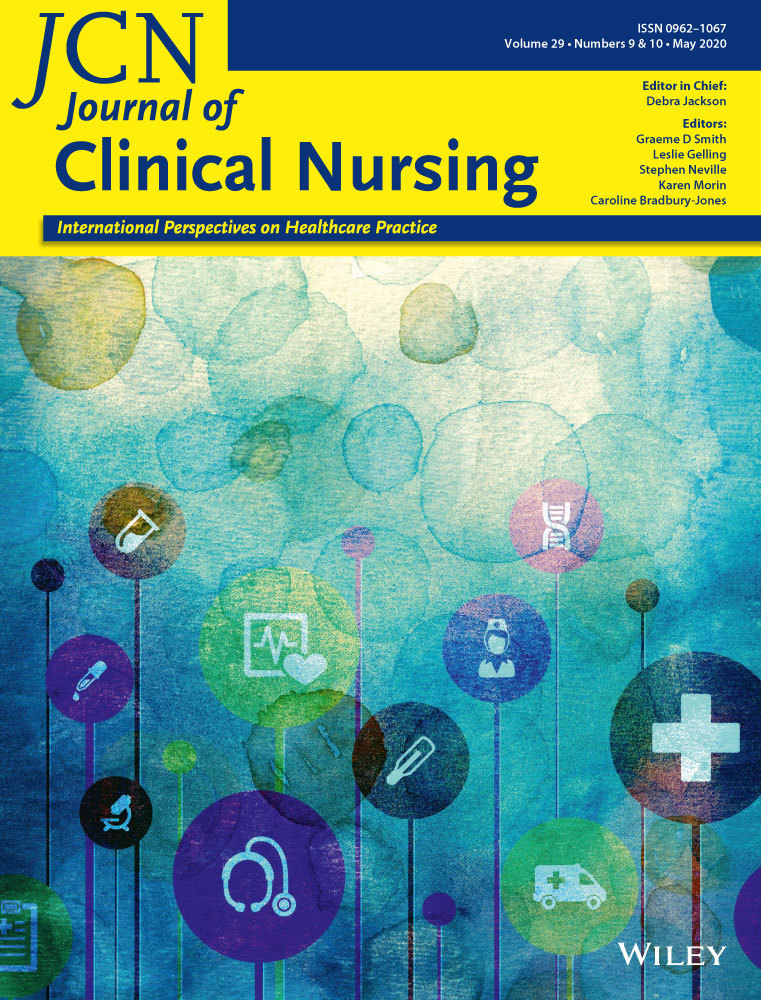Factors associated with quality of life in patients with diabetic hypoglycaemia
Funding information
This study was supported in part by Ministry of Science and Technology, Taiwan (MOST 106-2314-B-439-002).
What does this paper contribute to the wider global clinical community?
Patients with insulin regimen had better quality of life than those who received a combined regimen with insulin and oral hypoglycaemic agents.Participants' quality of life was positively correlated with their social support.The determinants of quality of life in patients with type 2 diabetes and hypoglycaemia included having an educational level of senior high school or above, being on an insulin regimen only, engaging in regular exercise, diabetes complications, fear of hypoglycaemia and greater social support
Abstract
Aims and Objectives
To identify determinants of quality of life among patients who had experienced hypoglycaemia and who were undergoing insulin treatment.
Background
Patients with diabetes receiving insulin treatment are at high risk for hypoglycaemia, which tends to affect their quality of life.
Design
With a cross-sectional and observational study design (see the STROBE checklist and Appendix S1).
Methods
One hundred and fifty patients with type 2 diabetes who had received insulin treatment and had experienced hypoglycaemia (<70 mg/dl) in the last 6 months were recruited. Data were collected from May 2016–February 2018 using the Knowledge of Hypoglycaemia Scale, Fear of Hypoglycaemia Scale, Social Support Scale and the simplified Taiwanese version of the Quality of Life Scale developed by the World Health Organization.
Results
Factors found to be associated with quality of life in patients with hypoglycaemia included having an educational level of senior high school or above, being on an insulin regimen only, engaging in regular exercise, diabetes complications, fear of hypoglycaemia and greater social support, which accounted for 28.5% of the total variance.
Conclusions
During the process of glycaemic control, patients inevitably experience hypoglycaemic episodes. Therefore, healthcare providers should assist patients with disease management to improve their quality of life. Future studies should also recruit patients who claim to have experienced hypoglycaemic symptoms, rather than considering only those with blood glucose levels below 70 mg/dl, to expand the generalisability of the findings. Future studies may also focus on the management of hypoglycaemia in patients on an insulin regimen, and on examining the effect of health education programmes on prevention of hypoglycaemia.
Relevance to clinical practice
The present findings could provide a reference for healthcare providers to consolidate nursing care guidelines and to improve such patients' quality of life.
CONFLICT OF INTEREST
No conflict of interest has been declared by authors.




